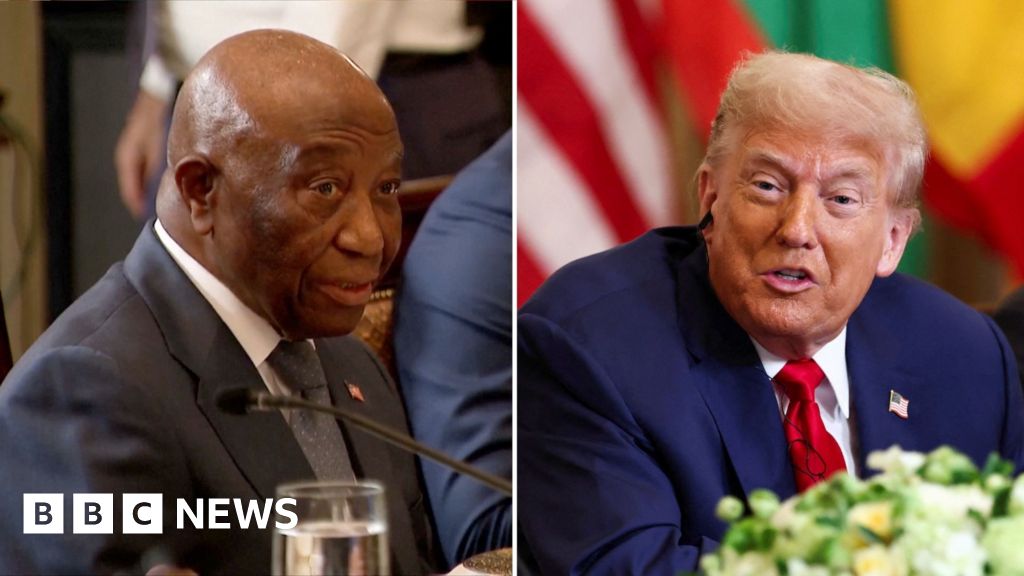China’s leaders have sent a clear message about the effects of the Trump administration’s sweeping tariffs: Things will be painful, but it is nothing that the country cannot handle.
A commentary on Sunday in the Communist Party mouthpiece, the People’s Daily, said Beijing had prepared for a trade war with the United States and that China could potentially come out stronger as a result.
“The abuse of tariffs by the United States will have an impact on China, but ‘the sky will not fall,’” it said. “China is a super economy. We are strong and resilient in the face of the U.S. tariff bullying.”
The commentary highlighted how China hopes to position itself as the tariffs cause growing economic disruption. It wants to be seen as a responsible champion of fair trade that is too powerful to succumb to U.S. pressure.
China also sought to project solidarity with other nations targeted by U.S. tariffs in another state media commentary on Sunday.
In that piece, China accused the United States of trying to “subvert the existing international economic and trade order” by putting “U.S. interests above the common good of the international community.” Washington was also advancing “U.S. hegemonic ambitions at the cost of the legitimate interests of all countries,” it said.
China’s projection of relative strength belies the grave harm the Trump administration’s tariffs could potentially inflict on the country.
Mr. Trump is bidding to transform a global trading system that China currently dominates. And exports remain the strongest engine for growth at a time when China is trying to dig itself out of a property crisis and tackle other major economic problems.
Despite that, the People’s Daily commentary argued that China was prepared to weather Mr. Trump’s tariffs because it was no longer as reliant on the U.S. market for its exports. It also said China’s banks were well capitalized and had room to inject more money into the domestic economy. And it argued that it can hit back at the United States with an array of new regulatory tools.
Some of those tools were used on Friday when China responded to Mr. Trump’s tariffs by putting 11 American companies on an unreliable entities list, and another 16 on an export control list. It also announced export controls on medium and heavy rare earths. That was in addition to slapping U.S. goods with tariffs of 34 percent to match duties imposed on Chinese goods.
China has been trying for months to to engage in high-level talks with the Trump administration in preparation for a potential summit between Mr. Trump and China’s top leader, Xi Jinping. But Beijing has struggled to receive much of a response from the White House despite Mr. Trump saying earlier this year that he was open to engaging with Mr. Xi.
China’s responses to two other rounds of 10 percent tariffs imposed by the United States earlier this year were calibrated to leave the door open for negotiations. Some analysts said Friday’s countermeasures were also designed that way.
The People’s Daily commentary said China “did not close the door for negotiations,” but that it would also prepare for the worst. It said the looming crisis would compel China to continue reforming its economy to rely more on its vast domestic market.
“We must turn pressure into motivation,” it said.
For all its bravado about withstanding the American tariffs, China was also censoring criticisms of its own move to impose retaliatory tariffs.
On Friday, a researcher at the Chinese Academy of Social Sciences wrote on social media that China’s countermeasures were “completely wrong.”
“The United States is shooting itself in the foot by tariffs, so we should not shoot ourselves in the foot as well,” wrote the researcher, He Bin, who was deputy director of the academy’s Center for Public Policy Research. “The correct countermeasure is to implement unilateral zero tariffs on imports from all countries.”
Mr. He posted the comment on his personal WeChat Moments, which are visible only to his friends and somewhat akin to a private Facebook page. But a screenshot of the post quickly began circulating more widely.
Then, on Sunday, the Chinese Academy of Social Sciences announced that it was shutting down the center where Mr. He worked. It did not give a reason for the closure but cited internal regulations around the management of research centers. Those regulations state that centers, among other things, “must adhere to the correct political direction.”
Screenshots of Mr. He’s comment were also grayed out on Weibo, another social media platform.
The center may already have been under intense scrutiny: Its director, Zhu Hengpeng, was detained and removed from his posts last year after allegedly making comments critical of Mr. Xi in a private group chat, The Wall Street Journal reported in September.
On Chinese social media, nationalist commentators cheered the center’s closure and linked it to Mr. He’s comments. “Resolutely support the spirit of the central government’s directive!” wrote a military blogger with 4 million followers on Weibo.
Source link















